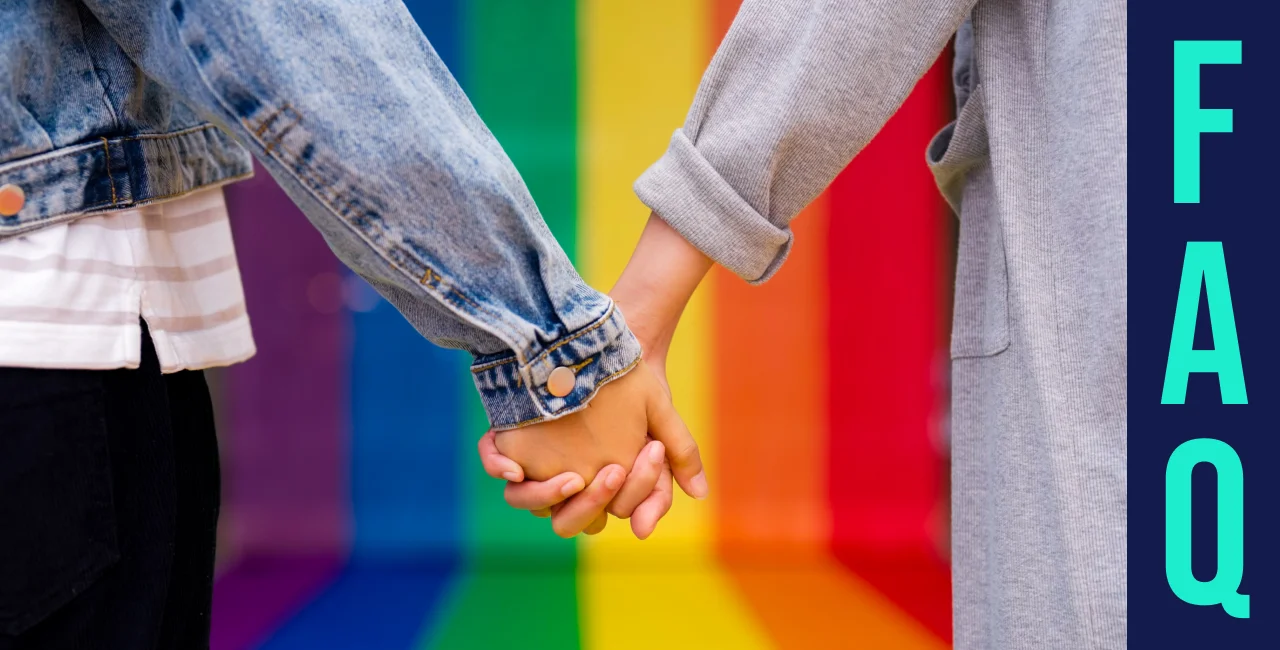As of Jan. 1, 2025, Czechia will officially recognize same-sex partnerships through a new amendment to the Civil Code. While this amendment offers some recognition and rights to same-sex couples, it still falls short of full marriage equality, according to the Jsme Fér advocacy group.
In fact, the organization reports that there are more than 100 differences between marriage and registered partnerships. While same-sex partners will gain most of the rights of marriage, restrictions related to the adoption of children will remain.
PARTNER ARTICLE
To simplify the legal jargon around the new legislation, the initiative has created an FAQ for couples in Czechia. Here's a breakdown of the rights, limitations, and legal complexities affecting same-sex partnerships in Czechia—as well as foreigners' rights within the framework of the new law.
Czechia's new law: Partnership, not marriage
Last year, the Czech Parliament passed an amendment to the Civil Code allowing same-sex couples to enter into a “partnership” rather than marriage. The law defines a partnership as “a permanent union between two people of the same sex, concluded in the same way as marriage.” Partners will have the same rights and obligations as married couples, except where specified otherwise by law.
While existing registered partnerships will remain valid, if current partners wish to convert their registered partnership into the newly established legal form of partnership, they must re-enter into the agreement under the new framework. The rights offered by the new law will not apply automatically to those in registered partnerships, such as the right to joint property.
Rights for same sex partners
- Joint property: Partners will have the ability to own property together, similar to married couples.
- Widow's/widower’s pension: If one partner dies, the surviving partner will be entitled to the widow’s or widower’s pension.
- Transfer of entitlements: Partners will be able to transfer rights to benefits like pensions or sickness benefits.
- Marriage-like procedure: The procedure for entering into a partnership will mirror that of marriage, with a ceremonial process and witnesses.
- Joint surname: Just like married couples, same-sex partners can adopt a joint surname. Registries can take place at any Registry Office (matrika).
Adoption rights: A complicated process
One of the most contentious aspects of the new law is the adoption process. While same-sex couples can adopt children, the process is more complicated than for heterosexual couples. For joint adoption, one partner must first adopt the child as an individual before the other can do the same.
This process contrasts with that of heterosexual couples, where both partners can adopt a child simultaneously, thereby simplifying the procedure. Many argue that this two-step process is discriminatory for both the children and the couples involved.
Moreover, same-sex partners will not be able to jointly adopt children from orphanages as they can only adopt children individually. This limits their rights to adopt children in the same way as heterosexual couples.
For female same-sex couples, the adoption process may also be impacted by the biological father’s role and consent, though this is more straightforward for men in similar circumstances.
Parental Rights and Adoption
- Joint foster care: Same-sex partners can become joint foster parents.
- Individual adoption: One partner can adopt a child as an individual, but the process is more complex than for married couples.
- Biological parent adoption: When a child is born to a same-sex couple, only the biological mother is listed as the legal mother. The other partner can adopt the child, but this requires a legal process involving court approval, guardian consent, and the child’s approval in some cases.
- Assisted reproduction: The law does not change the availability of assisted reproduction for lesbian couples. Currently, assisted reproduction remains limited to infertile male-female couples, and this restriction is expected to continue.
Foreigners' rights in same-sex partnerships
Can a Czech citizen to enter into a partnership with a foreign partner or two foreigners to enter into a partnership?
Yes. As with marriage, similar provisions apply to partnerships. Based on this, it should be possible for a Czech citizen to enter into a partnership with a foreigner or for two foreigners to form a partnership in the Czech Republic starting Jan. 1, 2025.
Will entering into a partnership grant the foreign partner Czech citizenship?
No. Entering into a partnership alone will not automatically grant citizenship. The foreign partner must still meet the required criteria. In certain cases, these requirements may be waived after entering into a partnership. For more information visit the government's Foreigners Portal website.
While the new law represents a step forward, it still highlights significant inequalities faced by same-sex couples in Czechia, Jsme Fér, writes:
"The two-tier system of marriage and partnership continues to divide people based on their sexual orientation, offering some legal recognition without full equality. Until the legal framework is more inclusive, LGBT couples will continue to face discrimination, particularly when it comes to adoption and parental rights."
The organizations' "Know your rights" project, in cooperation with the Prague Pride association, the Faculty of Law of Charles University, and the Slovenian human rights organization Legebitra, encourages those who are seeking legal advice about the evolving law to get in touch.












 Reading time: 4 minutes
Reading time: 4 minutes 






















